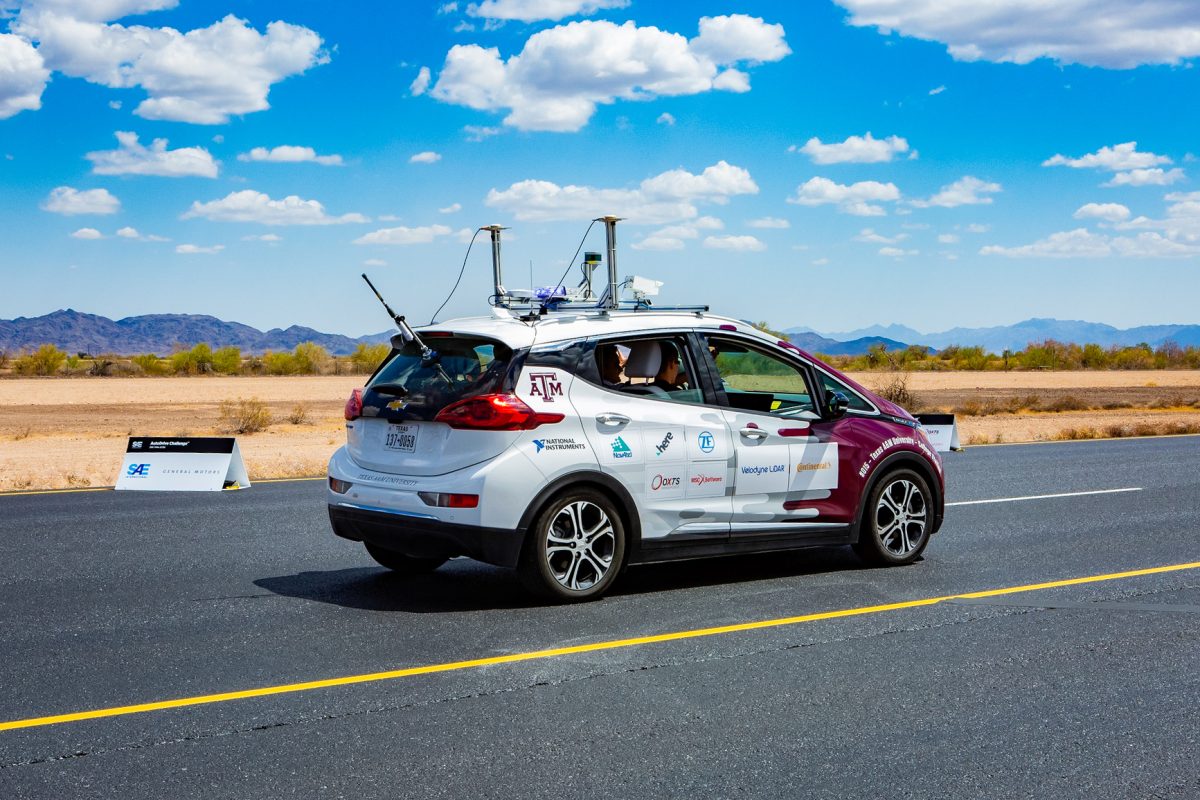Texas A&M is playing a leading role in expanding the capabilities of automated vehicles and investigating how they can be safely used on rural roads.
The Texas A&M Engineering Experiment Station (TEES) was recently awarded $7 million in federal grant funding from the Department of Transportation (DOT). In partnership with researchers from George Washington University and the University of California-Davis, A&M professors will be studying the specifics of how automated vehicles work on rural roadways — something Alireza Talebpour, assistant professor in the Department of Civil and Environmental Engineering, said not much is currently known about.
“Autonomous vehicle testing has pretty much only been done in urban centers,” Talebpour said. “The technology is useless if it only works in big cities – the majority of roads in the United States are rural. We want to enable autonomous driving for people who don’t live in big cities.”
Rural roads present a different challenge for autonomous vehicles. In urban areas, high definition maps are readily available. These are very detailed, are updated daily if not hourly, and are precise enough to enable the navigation of autonomous vehicles. However, these maps, along with clear signs and road markings, are not available for many rural roads. Additionally, environmental factors have different impact on rural roads, said Reza Langari, department head, professor and holder of the J.R. Thompson Chair in the Department of Engineering Technology and Industrial Distribution.
“Rural roads are subjected to environmental degradations and variations that interstate highways and arterial roads are not,” Langari said. “They are also designed and maintained differently … Autonomous vehicle technology needs to be more robust. In rural areas road boundaries are less defined, and this is more challenging, having to add capabilities.”
While the need for investigating these capabilities has always been there, the ability to do it has not. That’s where the DoT grant comes in, as it gives the researchers the resources they need to conduct the tests. The whole process is an expensive one: Talebpour says a car costs $300,000 to $400,000 minimum, plus significant costs for development, manpower and data collection and analysis.
“This is a unique opportunity for us,” Talebour said. “It’s one of, if not the, first time there’s a focus from the Federal Highway Administration and DOT on what’s missing in this area. The problem for testing has always been cost, and it’s been tough to get funding, but this is the perfect opportunity.”
While the testing of autonomous vehicles on rural roads will take place in Texas, the project has another aspect: further testing of autonomous vehicles in urban areas. Through the involvement of Professor Samer Hamdar at George Washington University, testing will be done in the District of Columbia and Northern Virginia using the same vehicle design as in Texas to see how it performs in different road and environmental conditions.
“We’re one of the few teams that tests autonomous vehicles in different environments, and I’m proud of our ability to do that,” Hamdar said. “GW is a leader in studying the urban environment, so we form a good complement to Texas A&M.”
The project is scheduled to run for four years, and the year will be spent working on vehicle development, which will be done at A&M with input from all team members. The second and third years will be spent doing testing and data collection. Talebpour plans for the cars to run seven days a week and eight to ten hours a day, providing vast quantities of data to be analyzed. During the fourth and final year, the data will be examined to see what went well and what went poorly, with tweaks being made and those improvements retested.
Talebpour said he hopes their data will provide a foundation for safe, autonomous travel in rural areas by the end of the four-year period.
“We are hoping we can have a set of algorithms tested and verified for safety and efficiency for cars driving on rural roads without high definition maps,” Talebpour said.
Texas A&M leading project to test autonomous vehicles on rural roads
October 24, 2019
Photo by Courtesy of Zachry Department of Civil & Environmental Engineering
Texas A&M professors are leading a teams of three schools in autonomous vehicle research with $7 million in grants from the Department of Transportation.
0
Donate to The Battalion
Your donation will support the student journalists of Texas A&M University - College Station. Your contribution will allow us to purchase equipment and cover our annual website hosting costs.
More to Discover









